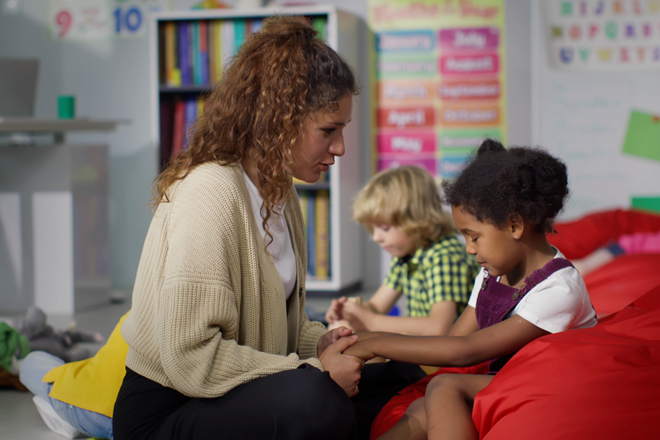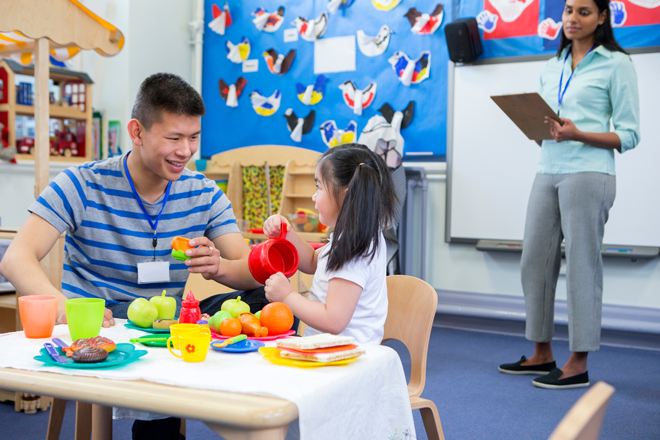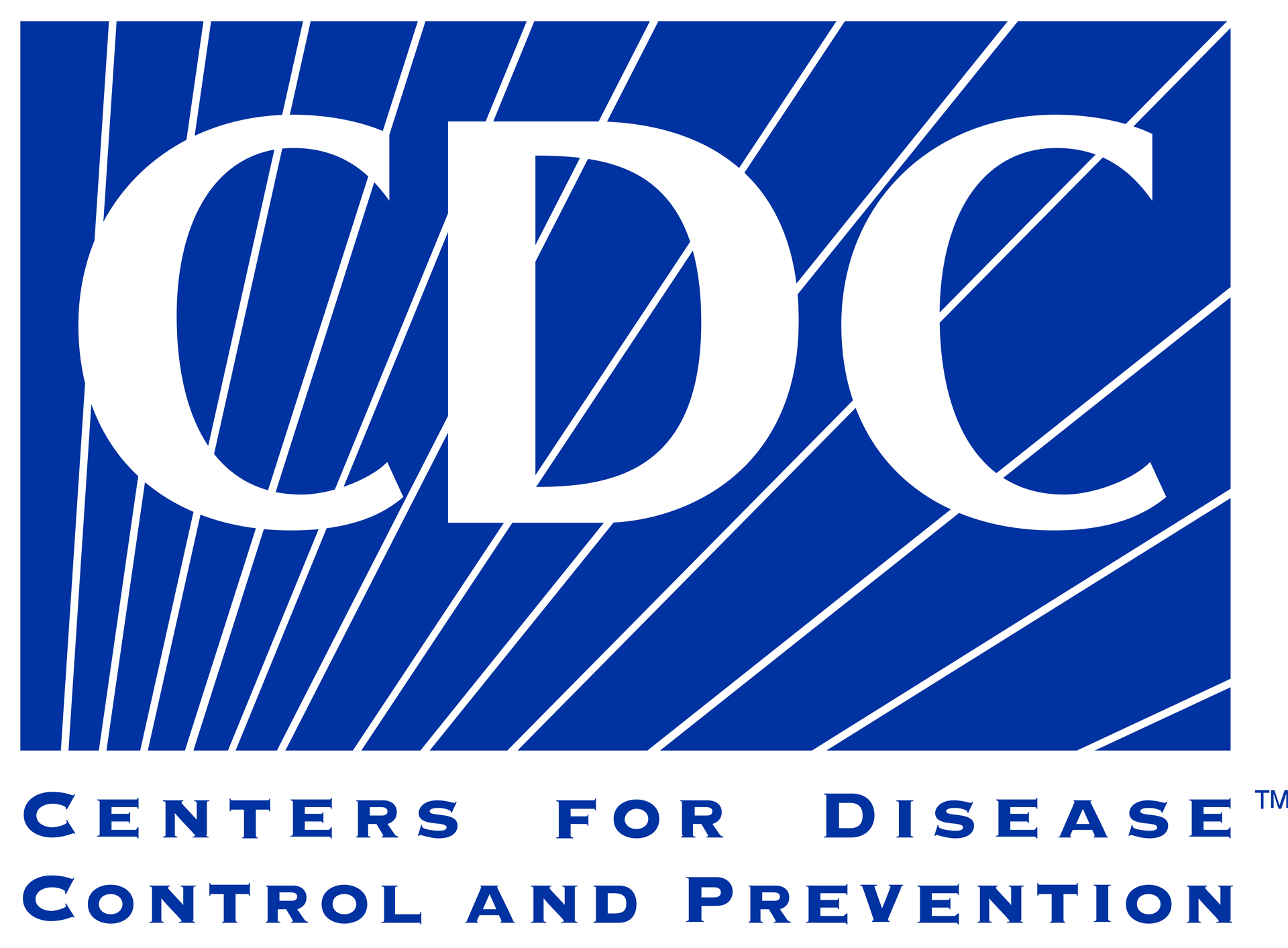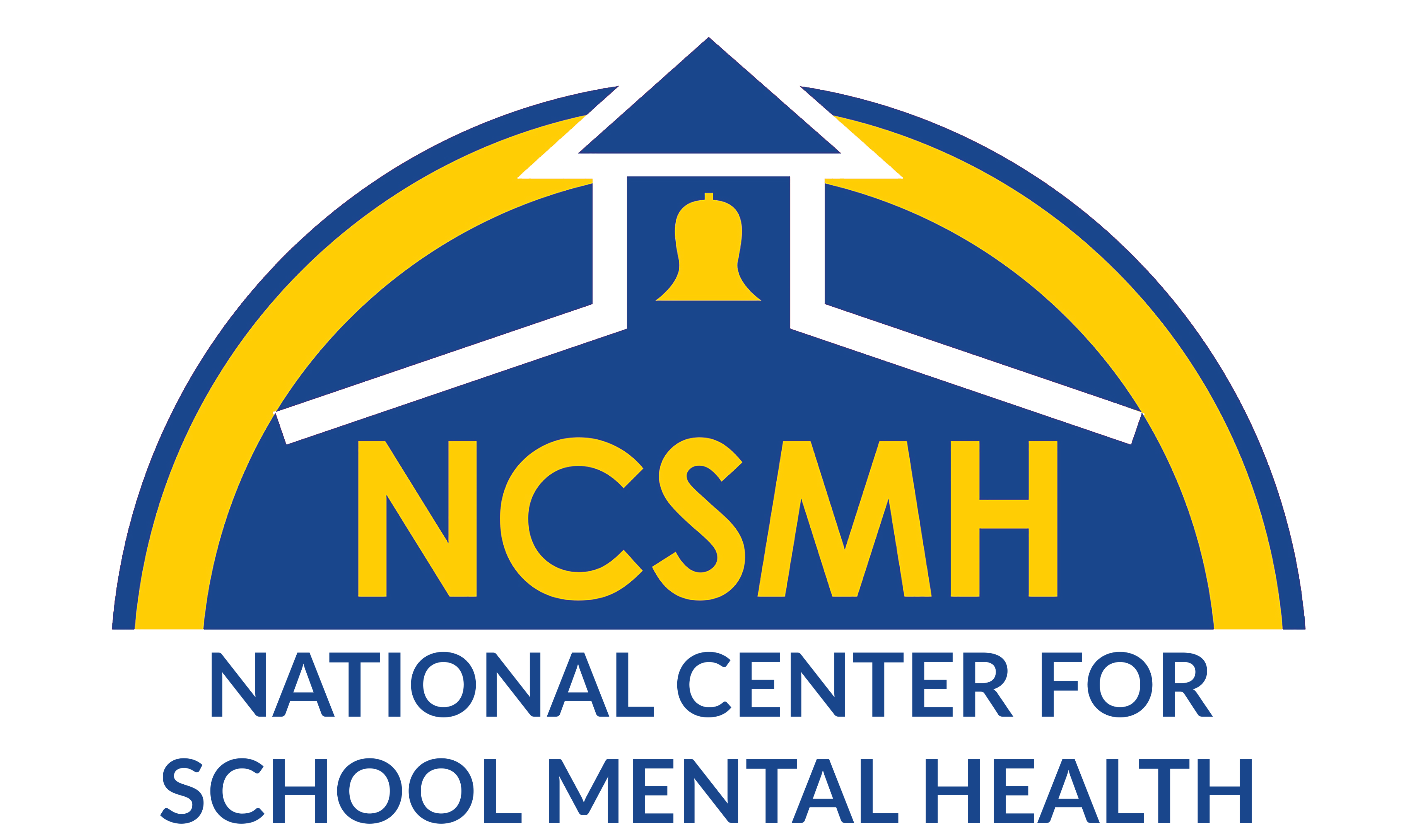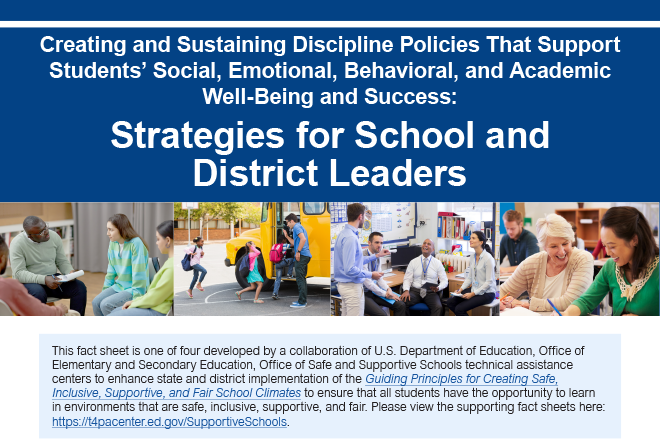Classroom observations are a key tool in educational research and practice, used to evaluate teaching methods, assess student engagement and behavior, and gather data on classroom interactions to inform instructional strategies and policy decisions. However, observations are not immune to implicit biases—or attitudes, behaviors, and actions that are prejudiced in favor of or against one person or group compared to another.
Practice-based coaching (PBC) promotes a strong collaborative partnership between teachers and coaches to facilitate the use of effective instructional practices. The PBC process includes skills instruction on BEST in CLASS practices, shared goals and action planning, implementation support, classroom observation, and reflection and feedback.
Schools are prioritizing students’ mental health, and there are many tools and resources to choose from. CDC created this action guide as a place to start. It can help school and district leaders build on what they are already doing to promote students’ mental health and find new strategies to fill in gaps.

